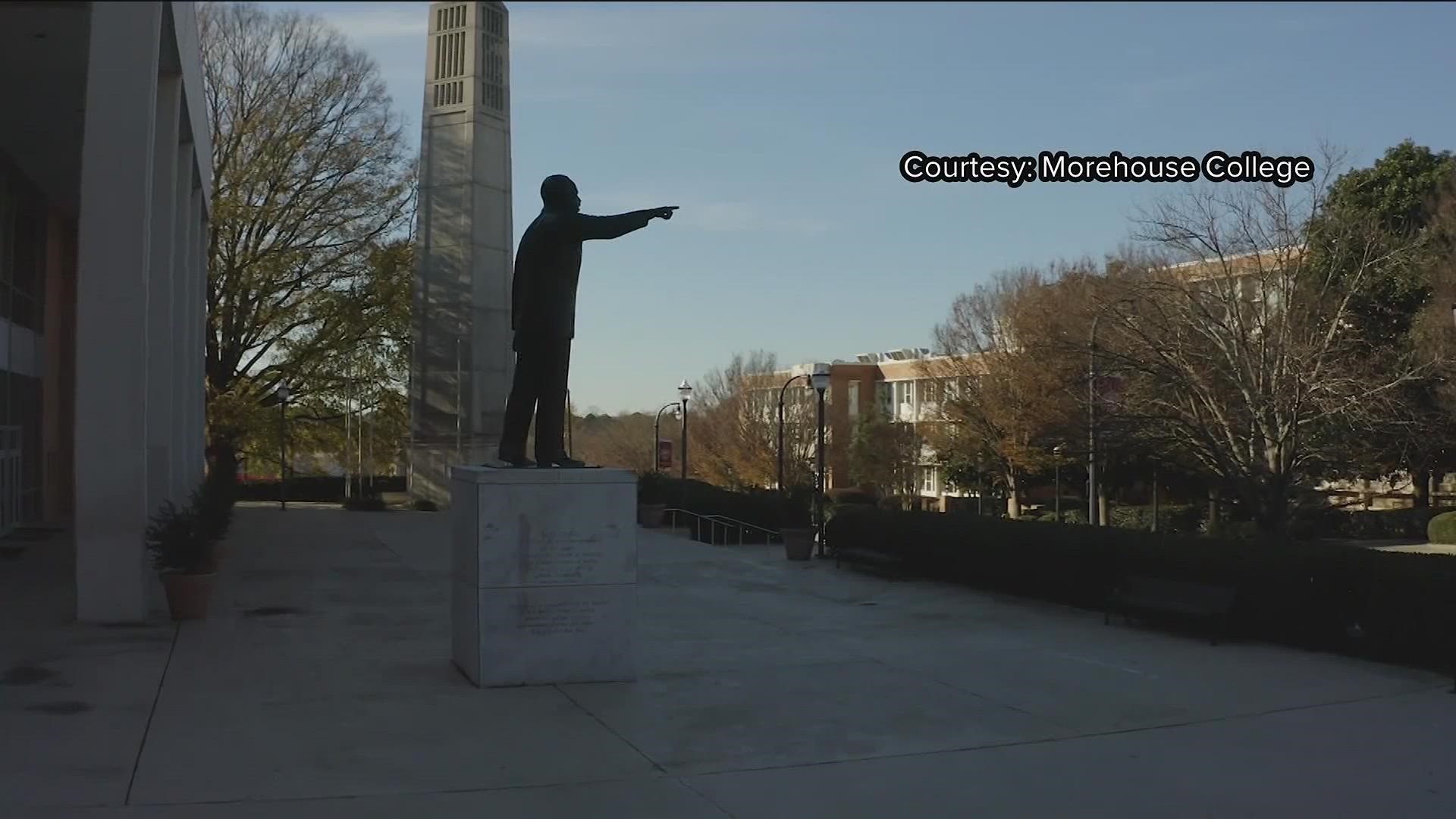ATLANTA — Morehouse College, a historically Black men's college, is starting a new initiative aimed at studying the experience and challenges of Black men.
The Black Men's Research Institute will study racial disparities in a variety of areas, including economics, politics, culture and policy. The Andrew W. Mellon Foundation awarded four years of grant funding for the institute. Dr. Clarissa Myrick-Harris, one of the authors of the grant to implement the program, said the institute is currently hiring staff and holding a national search for a director.
“The institute will provide a holistic view of the experiences, challenges and the successes of men of African descent," Myrick-Harris said. “It will help people understand how to negotiate a society that often doesn’t want to acknowledge the humanity of Black men.”
Shane Brooks, a junior software engineering major at Morehouse, said he wanted the program to compile a complete experience of what it means to be a Black man and show students, faculty and those in the community that there is diversity among people of color.
"We’re always pushed to the side, we’re targeted," Brooks said. "We’re a threat because we are men and we’re Black men. We don’t have the privilege of having a safe space where we can be men and be comfortable in our skin and have those difficult conversations about growing up as a Black man.”
Provost Dr. Kendrick Brown, another author of the grant to get the institute off the ground, said courses and discussions will start in the fall, with annual conferences and discussions to be held starting next school year.
"There are a lot of narratives put out about what Black men do, how we live our lives, the commitments we make," Brown said. "So, being able to tell a story and give the full range of experiences and influences Black men have is extremely important, providing opportunities for dialogue, providing opportunities for organizing, providing opportunities for dispelling narratives that really don’t further the wellbeing and experiences of Black people, Black men in particular.”
Brown said a lot of the issues surrounding criminal justice, finances and family relationships could connect with people of other races as well. Plans call for the institute to work with nonprofits to engage the community and turn the talks and teaching into action.
Brooks said he was looking forward to the program because he believes it can show how valuable Black men are in society.
"We’re not just athletes or entertainers," Brooks said. "We’re scholars, we’re thinkers, engineers, and we’re people who also contribute to society as well.”

